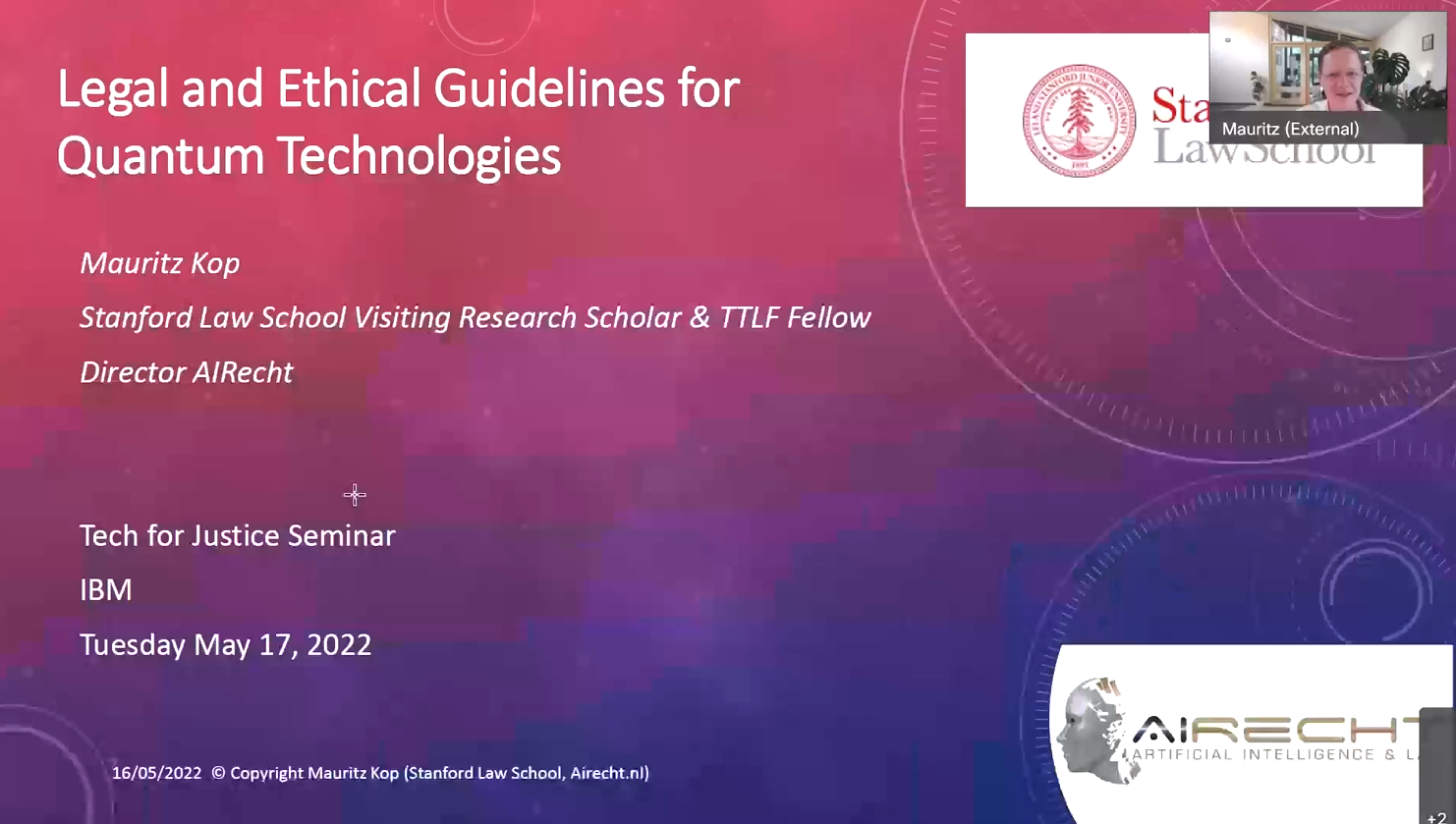For those deeply engaged in the intricate intersections of law, life sciences, and ethics, Professor Hank Greely’s annual BioLawLaPaLooza at Stanford Law School stands as an intellectual cornerstone. It is a vibrant, informal, yet deeply substantive gathering that brings together leading scholars to test new ideas, debate emerging challenges, and build the collaborative bridges essential for navigating our complex technological future. As a speaker and the photographer for the 2023 and 2024 editions, Stanford Center for Responsible Quantum Technologie Founder Mauritz Kop had the distinct pleasure of documenting and participating in these vital conversations. This post offers a reflection on and tribute to these remarkable events, which serve as a testament to the foresight and community-building spirit of Stanford’s Center for Law and the Biosciences.
The Center for Law and the Biosciences (CLB): A Foundation for Interdisciplinary Dialogue
Before delving into the events themselves, it is essential to understand the institution that makes them possible. The Stanford Center for Law and the Biosciences (CLB), under the direction of Hank Greely, has long been a preeminent academic hub for exploring the legal and ethical quandaries posed by advances in the life sciences. Alongside the Petrie-Flom Center for Health Law Policy, Biotechnology, and Bioethics at Harvard University, directed by Professor I. Glenn Cohen, the CLB stands as one of the world's leading institutions in this domain. The Center's mission is to foster interdisciplinary research, educate the next generation of leaders in law and science, and inform public policy on topics ranging from genetics and neuroscience to reproductive technologies and AI in healthcare.
The CLB's history is marked by influential scholarship, a distinguished roster of fellows and faculty, and a commitment to public engagement. Its fellowship program has proven to be a successful launchpad, with former fellows frequently securing positions as professors and becoming influential scholars in their own right. Its publications consistently shape academic discourse and provide critical guidance to policymakers. BioLawLaPaLooza is the embodiment of the Center’s mission, creating an environment where complex ideas can be presented and scrutinized in a collegial, fast-paced format. The event’s structure—short, sharp presentations followed by engaged discussion—ensures a breadth and depth of intellectual exchange that is both rare and invaluable.
The Journal of Law and the Biosciences: A Premier Scholarly Venue
Further extending the intellectual ecosystem of which the CLB is a part is the Journal of Law and the Biosciences (JLB). As the first peer-reviewed academic journal focused on the intersection of law and the life sciences, JLB serves as the premier venue for scholarship in this field. It is a co-publication of Duke University, Harvard University Law School, and Stanford University, published by Oxford University Press. The journal's leadership reflects the collaborative and interdisciplinary spirit of the field, with Editors-in-Chief Professor Nita Farahany (Duke), Professor I. Glenn Cohen (Harvard), and Professor Hank Greely (Stanford). Many of the scholars who present their nascent ideas at BioLawLaPaLooza are also contributors to and readers of the journal, highlighting the symbiotic relationship between the conference and the formal academic literature. https://academic.oup.com/jlb
Meer lezen



